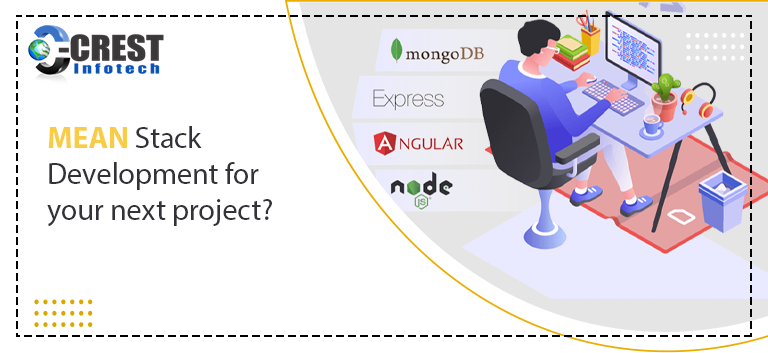What distinguishes MEAN Stack Development from other types of development?
The following are the main characteristics of MEAN Stack Development:
Speedy and straightforward
The development of apps/websites that run on a single language, such as JavaScript, is considerably easier and faster.
Active Dev Community
MEAN Stack is based on JavaScript, the most widely used programming language on the planet. As a result, it comes with one of the most active development communities, making finding solutions easier and more accessible to all parties.
MEAN Stack Flexibility
MEAN Stack is incredibly suitable for a wide range of online applications due to the total adaptability of its programming language, i.e. JavaScript.
What are the advantages of developing a MEAN stack?
MEAN uses a single language
Because MEAN Stack is built on JavaScript, every technology within it is also based on JavaScript. This simplifies application development because JavaScript is used to control everything from database configuration to frontend and server-side processing. As a result, you won’t have to hunt for other developers who are experts in a specific language or server.
MEAN is Open Source and Cost-effective
Every technology in MEAN Stack is written in JavaScript, an open-source programming language. As a result, the platform is open-source as well. You don’t have to pay anything to download and use it. As a result, MEAN Stack development firms do not charge you licence fees.
Furthermore, when compared to the LAMP Stack, MEAN requires less developers; for example, with LAMP, you’ll need engineers who know JavaScript, PHP, and MySQL.
MEAN is highly flexible
After the programme has been developed, the developer can easily test it on the cloud. MEAN is extremely versatile since it allows you to a. build, b. test, and c. deliver an app without any issues. Furthermore, once you’ve added a field to the form, MEAN allows you to add additional data.
MEAN is isomorphic
MEAN makes isomorphic coding simple. Developers may quickly move their prepared code from one framework to another using MEAN. Isomorphic codes are those that were written in one framework but can be reused in others. Furthermore, this code functions flawlessly as if it were written natively. One of the most significant advantages of MEAN Stack app development is this.
MEAN is user-friendly and provides excellent UI
In any web/mobile app, Angular is well-known for its amazing user-interface (UI) and user experience (UX). As a result, many of your favourite brands employ Angular.JS, which is widely regarded as the best front-end technology. It also supports the MVC (Model-View-Controller) architecture, which ensures that the user interfaces are of high quality.
MEAN is re-usable and speedy
MEAN uses Node.JS, which results in great speed and reusability due to Node.non-blocking JS’s architecture. Angular.JS is also an open-source JavaScript framework, which means it’s reusable, testable, and easy to maintain.
MEAN is well-suited to the cloud
MEAN Stack’s development approach makes use of public repositories and libraries, lowering the overall development cost. MongoDB also makes advantage of cloud functionality in the app, which reduces the amount of disc space required.
MEAN makes it easier for developers
Another advantage of the MEAN stack that makes it developer-friendly is the presence of JSON. When developers use MongoDB or Angular, data transfers between layers become smooth and simple. MEAN’s isomorphic features also save a significant amount of time.
While altering existing MEAN stack formats, JSON effectively saves time. JSON enables external APIs, allowing developers to quickly implement new features that improve the client experience. JSON also makes it easier for developers to use PHP.
MEAN provides developers with the ideal framework for creating dynamic apps, ranging from single-page applications to advanced-complicated apps. Leading mobile and online application development organisations are increasingly using MEAN as a new approach to development.
